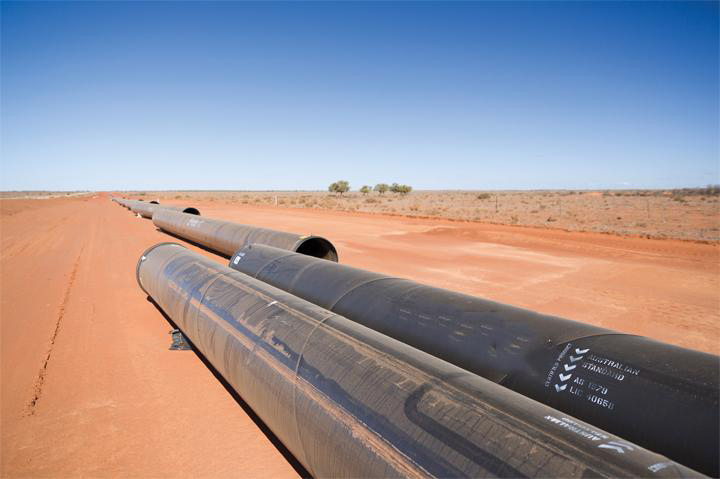The development process of ERW steel pipes at home and abroad.

High frequency straight seam welded pipe (ERW) is the hot rolled coil plate formed by the forming machine, using the skin effect and proximity effect of high frequency current to heat and melt the edge of the tube blank, and pressure welding under the action of the squeeze roller To achieve production. The high-frequency resistance welding method was applied to the production of welded pipes in the 1950s. In the past ten years, its production technology has become more and more perfect, and product quality has been continuously improved. The first is that the quality of raw materials used in ERW production has been significantly improved. Low C, low P, S in the design of steel components, microalloying; converter smelting, ladle refining, vacuum degassing, continuous casting and other new technologies in the smelting process The use of controlled rolling and controlled cooling technology in the rolling process has greatly improved the appearance size, appearance quality, and physical and chemical properties of hot-rolled steel strip for large and medium-caliber ERW steel pipes. The pipeline steel produced by Baoshan Iron & Steel Co., which represents the highest level of hot-rolled steel strip in China, has met the requirements of the American Petroleum Institute API 5L standard and is at the international leading level.
Secondly, the automatic control of the computer is realized in the production process of large and medium-caliber ERW steel pipe forming welding heat treatment, and the heat input energy during the high-frequency welding process is effectively controlled with the computer’s automatic compensation system, preventing the welding heat input energy from being low The resulting cold welding, virtual welding and overheating caused by high heat input energy. The control of the intermediate frequency heat treatment temperature enables the heat treatment process to achieve the best results according to the process requirements, effectively ensuring the quality of the weld and heat affected zone.
In addition, the advancement of detection technology has achieved online or offline full-weld ultrasonic or eddy current exploration injuries. The hydraulic test can also be tested and stabilized according to requirements under the supervision of a computer. The promotion and implementation of the ISO9000 series of standards and APIQ1 specifications make the production, inspection, sales and service of large and medium-caliber ERW steel pipes in the quality assurance of a whole process. In recent years, various countries are actively studying to replace seamless pipes and spiral welded pipes with ERW steel pipes. In industrially developed countries, the diameter is less than φ610mm, and the proportion of ERW has reached about 70%.
In the past ten years, Japan’s ERW welded pipe has developed rapidly. Nippon Steel & Steel Corporation, Sumsei Metals and Wakayama Ironworks each have a 508 mm (20 in) ERW welded pipe production plant; Kawasaki Chita Steel Works and Japan Steel Pipeline Keihan Steel Works each have a 609 mm (24 in) ERW welded pipe production line. At present, the output of ERW welded pipes has accounted for 70-75% of the total output of Japanese steel pipes, while the spiral seam submerged arc welded pipes have been less.
In the past ten years, Japan’s ERW welded pipe has developed rapidly. Nippon Steel & Steel Corporation, Sumsei Metals and Wakayama Ironworks each have a 508 mm (20 in) ERW welded pipe production plant; Kawasaki Chita Steel Works and Japan Steel Pipeline Keihan Steel Works each have a 609 mm (24 in) ERW welded pipe production line. At present, the output of ERW welded pipes has accounted for 70-75% of the total output of Japanese steel pipes, while the spiral seam submerged arc welded pipes have been less.
South Korea’s ERW welded pipe started to develop fast and has replaced a lot of seamless steel pipes. Busan Steel Pipe Company and Hyundai Steel Pipe Company each have 9 welded pipe production lines, 8 of which are ERW welded pipe production lines, and only one spiral submerged arc welded pipe order is getting less and less. The main reason is that the long-distance oil and gas pipelines constructed with spiral-seam submerged arc welded pipes are decreasing year by year, and some countries even do not allow the use of spiral-seam submerged arc welded pipes on important long-distance oil and gas pipelines. As stipulated by American Amoco Company, it is not allowed to use spiral seam submerged arc welded pipes for long-distance oil and gas pipelines.
Argentine Siat company has an RBE straight submerged arc welded pipe production line, two ERW straight seam pipe and a spiral slot submerged arc welded pipe production line. According to Siat, in Argentina, spiral seam submerged arc welded pipes are generally only used for water transportation and pile driving. The main pipeline of oil and gas long-distance transmission uses RBE straight-seam submerged arc welded pipe, and some branch lines adopt ERW welded pipe.
Russia’s Seversky Tubeworks has six ERW welded pipe production lines. The first production line was built in 1962. The latest workshop was built in 1993. The diameter of the steel pipe is 6-32mm, 10-76mm, and 20-76mm. , 20-102mm, 73-219mm, 102-220mm, galvanized steel pipes can be produced according to requirements, the total annual output is 920,000 tons.
American GENEVA STEEL, CSI TUBUL AR PRODUCTS IPSCO TUBULARS LONESTAR, NEWPORT STEEL, TUBACERO INTERNATIONAL and US STEEL TUBULAR PRODUCTS all have ERW welded pipe production lines.
In China, large and medium-caliber ERW steel pipes appeared in the late 1980s and early 1990s, but the development is extremely rapid, and the market coverage of the products is getting larger and larger. Industrial areas such as urban pipe networks and building structures. For more information, please visit: https://www.permanentsteel.com.
Scott Ellyson, CEO of East West Manufacturing, brings decades of global manufacturing and supply chain leadership to the conversation. In this episode, he shares practical insights on scaling operations, navigating complexity, and building resilient manufacturing networks in an increasingly connected world.